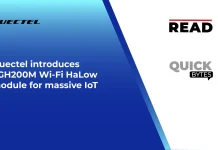Pay Theory, a Cincinnati-based startup, and the first payment platform with the mission to break down barriers between families and their most vital service providers through simple, beautiful, and inclusive financial solutions, has closed a $2M Seed Funding round led by Zeal Capital Partners, a Washington, D.C.-based venture capital firm known for its commitment to inclusive investing. The investment — which brings Pay Theory’s total funding to $2.5M — will go toward product development and talent acquisition for roles in sales, finance, and software development and allow it to focus on growing its Family Tech SaaS vendor and service provider relationships.
Also Read: NuMiner Announces Next-Generation NM440 Bitcoin Miners and NuMiner Global Launch
Additional new investors in the seed round include SixThirty, Ohio Impact Fund, Gaingels, and Sica Ventures. Pay Theory also received follow-on investments from Double Eagle Venture Partners, LOUD Capital, and a number of their existing angel investors.
“This is a major step forward for Pay Theory. It represents validation for our approach to inclusive finance in the business verticals where it counts most for families,” says Brad Hoeweler, CEO, of Pay Theory. “Zeal, SixThirty and the rest of our investor group bring us deep experience in payments and fintech. Their leading this seed round investment exemplifies their commitment to our innovation in this fast-growing, ever-evolving space.”
“Pay Theory offers a new opportunity for fintech to leverage its power to narrow the financial divide for families and communities that have been historically ignored and underserved in the financial services industry,” says Nasir Qadree, Founder and Managing Partner of Zeal Capital. “The potential of becoming a market leader – the impact and scale of that impact – is in lockstep with Zeal’s mission to spur greater economic mobility across the US by closing the financial gap for the un- and underbanked. We are excited to help propel their journey.”
Pay Theory was founded on the idea of building a better payments solution for K12 schools, which is still a focus area for the Company, but in learning how to help schools they ran into this important question: What are you doing to create equitable, inclusive access for all students and their families?
Roughly 30 percent of K12 public school families in the US are un- or under-banked, locked out from traditional financing systems, and left to rely on physical cash and alternative financing to make household finances work.
More than half of Americans are living paycheck to paycheck, with nearly a quarter of them un- or underbanked, creating challenges in making payments on time, particularly when bills can be lumpy, like the beginning of a school year or a surprise health situation. These challenges have only been exacerbated by COVID19, as transactions have moved online and families have lost jobs and been prevented from making payments in person.






